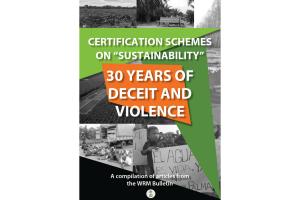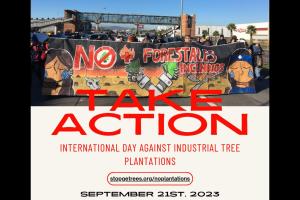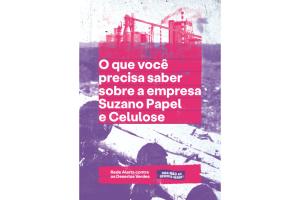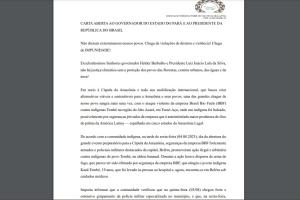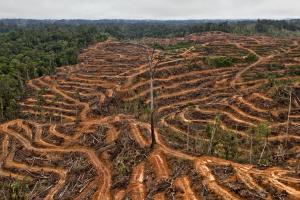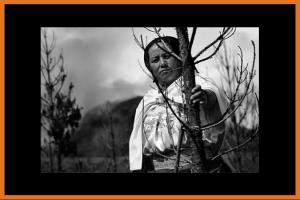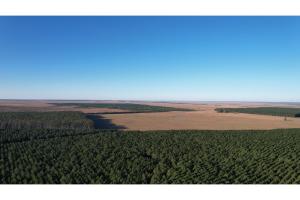Alamindo Lestari Sejahtera (ALS) Group, that owns and controls at least three timber companies and industries in Papua, is expanding the business of timber forest products exploitation in the customary area of the Moi Tribe through a company called PT Hutan Hijau Papua Barat (HHPB).
Large-Scale Tree Plantations
Industrial tree plantations are large-scale, intensively managed, even-aged monocultures, involving vast areas of fertile land under the control of plantation companies. Management of plantations involves the use of huge amounts of water as well as agrochemicals—which harm humans, and plants and animals in the plantations and surrounding areas.
Publications
25 October 2023
This compilation of articles from the WRM Bulletin aims to underscore the damaging role played by companies and organizations involved in certification schemes.
Action alerts
21 September 2023
Sign the letter in support of Indigenous and local communities devastated by the social and ecological impacts of industrial tree plantations, and threatened by the planned future use of GMO tree plantations.
Publications
15 September 2023
In this booklet we share basic information about GE trees, in particular about seven varieties of eucalyptus trees that have already been approved in Brazil. This is the first country besides China to approve the large-scale use of GE trees.
Publications
21 August 2023
Suzano is a Brazilian multinational company that produces cellulose and paper products from eucalyptus plantations. Read this booklet produced by the ‘Alert Against the Green Desert’ Network and find out important facts that are often hidden by this mega-company’s propaganda machine.
Multimedia
11 August 2023
Tembé indigenous leaders shot by private security forces (only available in Portuguese).
Articles
11 August 2023
Your Excellencies Governor Helder Barbalho and President Luiz Inácio Lula da Silva, there is no climate justice without the protection of two forests, urban centers, water and land! (Only available in Portuguese).
Multimedia
28 July 2023
In the state of Chiapas, in southern Mexico, women's organizations are resisting the advance of a monoculture crop that is invading their lands and bringing scarcity and water pollution.
Bulletin articles
22 July 2023
This article tells the story of a women group in Kalimantan called “Hurung Hapakat”, which means “Working Together”. Collectively, and against serious repression, they have reclaimed some land from oil palm plantations in order to also reclaim their food sovereignty, dignity and wisdom. And they are not alone.
Bulletin articles
22 July 2023
Women's organizations are resisting the advance of a monoculture crop that is invading their lands and bringing scarcity and water pollution. In this podcast, they explain their situation and their struggle. The podcast was produced by the groups Women of the Chiapas Coast against Oil Palm and Coastal Women in Rebellion, in collaboration with WRM.
Bulletin articles
22 July 2023
In this bulletin, focused on the violence that the so-called ‘green economy’ represents for Indigenous Peoples and peasant communities, we remember an interview with Josephina Lema, member of the Otavalo people of the Kichwa (Quechua) nation.
Bulletin articles
22 July 2023
After 14 years of profiting from tree plantations—and at the cost of destroying wetlands and communities—the Harvard Management Company, one of the largest investment funds, sold 88,000 hectares in Corrientes to Argentina's largest electric power company, Central Puerto, which also wants to produce wood, biomass energy and carbon offsets.

